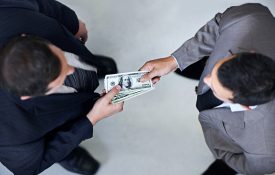-

People Can Infer Which Politicians Are Corrupt From Their Faces
People can make better-than-chance judgments about whether unfamiliar politicians have been convicted of corruption simply by looking at their portraits. Visit Page
-
Bursting people’s political bubbles could make them even more partisan
Politics is polarizing enough, especially when it’s easier than ever to find a group of like-minded friends online. The antidote, then, seems obvious: pop the bubble. Step outside the echo chamber. Reach out for other Visit Page
-
How to Play Our Way to a Better Democracy
Before he died, Senator John McCain wrote a loving farewell statement to his fellow citizens of “the world’s greatest republic, a nation of ideals, not blood and soil.” Senator McCain also described our democracy as Visit Page
-
White threat in a browning America
In 2008, Barack Obama held up change as a beacon, attaching to it another word, a word that channeled everything his young and diverse coalition saw in his rise and their newfound political power: hope. Visit Page
-
Actually, Republicans Do Believe in Climate Change
It is widely believed that most Republicans are skeptical about human-caused climate change. But is this belief correct? In 2014 and 2016, we conducted two national surveys of more than 2,000 respondents on the issue Visit Page
-
How Psychology Explains Partisanship
Why are Americans so politically polarized? For June’s Masthead book club, members chose a read that addresses the question from a psychological perspective: the social psychologist Jonathan Haidt’s The Righteous Mind: Why Good People Are Visit Page

